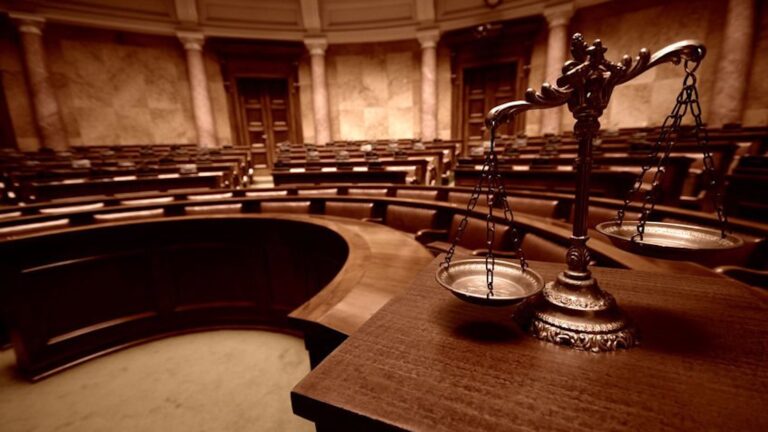The best system for justice is supervision of justice producers by customers.
Justice is produced most of all by high-quality individual moral development. The key producers are parents, community contacts, schoolteachers, writers, and religious teachers.
Some individuals for some time are inadequately morally developed and pose a threat of harm to others. The immediate, direct defense is self-produced justice. This can also defend others. A slower, indirect defense is other-produced justice.
Other-produced justice is produced on specific cases for specific individuals, for prices that are paid by all insured group members. Justice increases when justice insurers help insured group members proactively take precautions that prevent losses or limit losses. Precautions that work include arming and training to self-produce justice on demand.
Justice-production systems rely on contractual standards:
- Contractual standards should define rules and sanctions that apply equally to all and are minimal and comprehensible. Such contractual standards would be produced if powers were duly separated, and various powers were adequately incentivized to provide in-process checks and remedies.
- Suitable process checks and remedies include regular, traceable, untainted elections of representatives; documented debates; documented votes; vetoes; veto overrides; appeals on cases; pardons of convictions; summary impeachments of process violators; and non-execution of rules and sanctions if contractual processes weren’t followed or if a rule or sanction would unduly violate an individual’s unalienable rights.
Given contractual rules and sanctions, violations are prosecuted by victims’ agents. In principle, victims, which include crime victims’ family members, might desire unjustly-differing intensities of investigation and punishment. But in practice, no third-party supervision system would robustly bring to bear the same consuming interest that victims would bring if they were prosecutors’ customers. People who are victims in one case would know they could be accused in other cases. Their overall interests would lead them to choose competent, just police, investigators, prosecutors, judges, and jailers.
A prosecutor should always press only supportable, apparently-true charges, never unsupportable or clearly-untrue charges. At times, more evidence than not will indicate that a prosecutor has pressed, or has threatened to press, unsupportable or clearly-untrue charges. Whenever this is the case, individuals’ representatives should eliminate the credible threat that this prosecutor poses to future individuals by summarily impeaching the prosecutor and removing his privilege to ever act as an agent exercising individuals’ delegated powers.
Judges must ensure that a person who faces a criminal punishment receives due process. Due process includes only one jeopardy for a given alleged incident, warrants for searches and seizures, defense counsel, not-excessive bail, arraignment, a grand jury if a crime is infamous, a speedy and public trial, an impartial local jury, confrontation of adverse witnesses, freedom to obtain favorable witnesses, freedom to not self-incriminate, and freedom from cruel and unusual punishments.
A grand jury should be capable of reviewing and augmenting a prosecutor’s evidence and charges. A prosecutor can unjustly over-investigate, overcharge, under-investigate, or undercharge. Every grand jury should be clearly tasked with evaluating all such errors, and should include enough high-functioning members who will do their part when needed to produce justice.
When a judge opines on a case, the process required of a judge should be suitable to deliver the best quality:
- Inputs should not be permitted from clerks, from amici, or from judges’ opinions on other cases. No person or thing should interfere with the judge, who is the senior lawyer in the case at hand, focusing on the case’s facts and directly interpreting in his own words how the contractual rules and sanctions apply.
- Wholly-secret production of actionable law should not be permitted. Before an opinion is considered actionable law on a case, a judge should be required to first publish his draft opinion for outside review.
- Injustice that deprives a person of his unalienable rights should not be permitted to persist on any case. If a compelling counterargument doesn’t surface at first but does surface later, this counterargument should not just relieve accused persons on future cases, this should relieve the accused person on the initial case immediately. Relief should come from any person who has the required knowledge and power, which includes the initial judge, appeals judges, informally non-executing executives, and formally-pardoning executives.
On conviction, if possible and if either cost-effective or voluntarily paid for by the insured group members, a convicted person’s moral development should be continued until the person won’t harm others. Each incarcerated person can be assigned to his own cell. People who from the start are more morally developed can be helped best by segregating them. People can be provided drug treatment, mental-health treatment, schooling, job training, help finding employment, and social support.
If a given person’s moral development can’t continue until the person won’t harm others, the person must be prevented from harming others for a period of time. Such non-rehabilitative incarceration is the best justice that people will know how to produce for some convicted persons.
How should we get justice produced best? That’s simple. In free and voluntary cooperation, producers compete to add value that customers voluntarily choose. Customers are the best supervisors; under customers’ supervision, producers improve remarkably. This system has remarkably improved the selection and quality of all products for which it has been used. This system is equally the key to improving justice production by improving teaching, self-produced justice, rules and sanctions, prosecution, grand juries, due process, judging, rehabilitation, and incarceration.
Every case generates highly-motivated victims who, as customers, are concentrated, intimately-informed, highly-motivated interests. Every person benefits when justice is produced best.
To develop producers who produce justice best, the key is to get producers supervised by customers.














A pile of Soft soap. This article is about as bad and off track as it gets. It is a nice wish list. The US Courts (at almost every level) are now (overtly), arms of the political class, who identify, appoint, and remote control nearly every judicial decision. Customers? The judicial system in the USA does not have “Customers”, it has Subjects and in some cases targets.